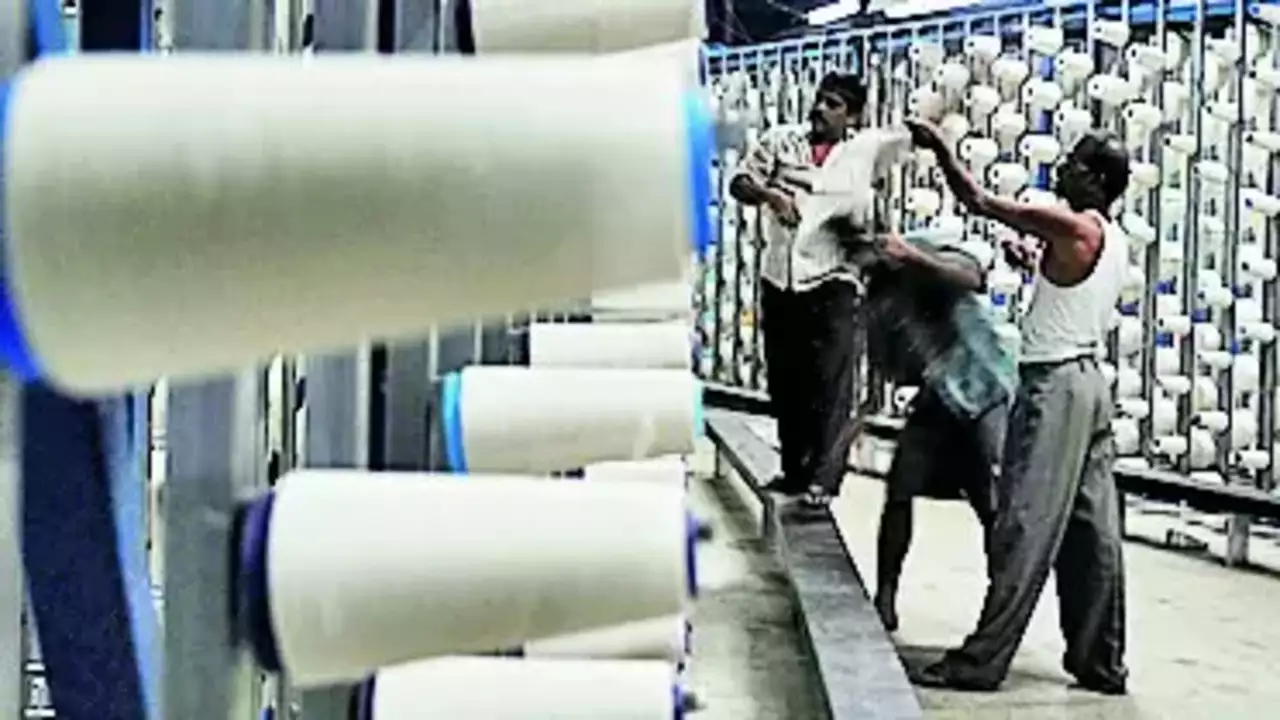Indian Textile Industry Faces Unprecedented Crisis, SIMA Appeals for Government Support

06 October 2023, Mumbai
The Indian textiles and clothing industry, which is predominantly cotton-based, has been facing unprecedented financial stress and crisis for more than a year due to a number of factors, including:
Geopolitical Tension
Steep fall in global and domestic demands caused by the prolonged Ukraine-Russia war, economic slowdown in the EU, USA, and other countries, 11% import duty on cotton and ill effects of MMF Quality Control Orders that had enabled the indigenous cotton traders and MMF producers to adopt import parity pricing and making the industry uncompetitive in the global market.
Multiple data points
The average monthly textiles and clothing exports during the period April 2022 to August 2023 have dropped by 19% when compared to the previous financial year 2021-22.
The cotton textile exports dropped by 24% and cotton yarn exports dropped by 46%. The entire textile value chain particularly the capital-intensive spinning sector had to cut down its production by 30% to 40% continuously for several months which forced a majority of spinning mills particularly SMEs to become SMA1, SMA2, and NPA accounts.
Under the current crisis, apart from the regular loan repayment schedule, the ECGLS 1.0 has already increased the impact on the financials and the ECGLS 2.0 repayment to be made from October onwards, would drive a majority of the spinning mills to become NPAs.
Appeal
SIMA, the Southern India Mills' Association, has appealed to the Government to provide support to the textile industry by taking the following measures:
Convert ECGLS short-term loans offered as a COVID relief measure with a repayment period of three years to six years term loan so as to reduce the financial burden for the textile units and avoid becoming NPAs both in the interest of the textile industry and also the financial institutions.
Exempt cotton from 11% import duty during April to October (off-season) as was done during the cotton seasons 2021-22 would enable a win-win strategy for both the cotton farmers and the industry, thereby avoiding speculation of cotton prices by the trade.
Business case
Exempt the American PIMA and Egyptian GIZA ELS cotton from the import duty as India does not produce similar quality cotton and therefore will not affect the farmers. He has added that as India consumes around 45% of the PIMA and GIZA cotton produced per year the import duty removal is essential to sustain the market share already established by the country.
SIMA Chairman Dr. S. K. Sundararaman has said that the financial viability of the spinning mills in South India, particularly in Tamilnadu, which accounts for 45% of the production capacity, is at stake under the current scenario.
He has also highlighted the steep increase in power tariff for the SME spinning mills up to Rs.2.35 per unit and for HT and EHT consumers by Re.1.00 per unit, which has increased the cost of production significantly as power accounts for over 40% of the total manufacturing cost.
SIMA has appealed to the Government to take immediate steps to address the financial stress being faced by textile units in the country and to protect the jobs of millions of workers who depend on the industry for their livelihood.
Latest Publications

































